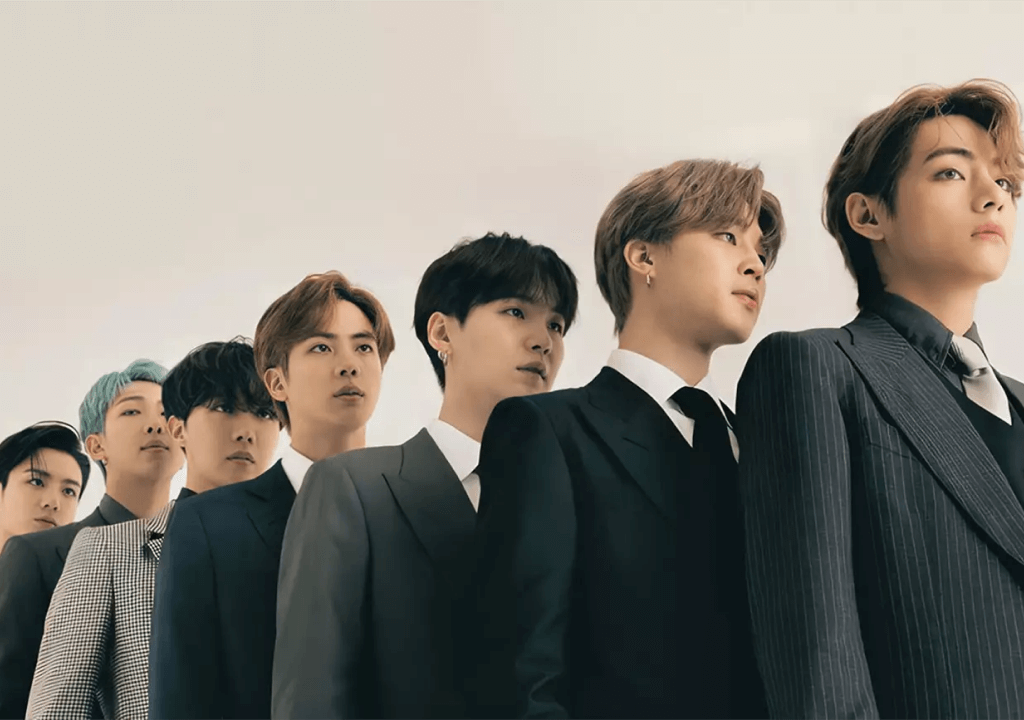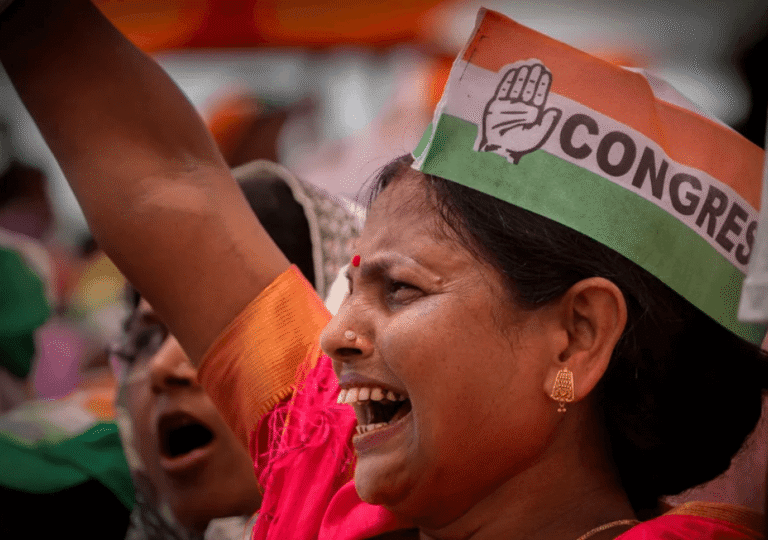Several months ago, a cohort of young girls mysteriously disappeared from their homes in India, sparking a widespread search by local authorities. Subsequent investigations led the police to locate the missing girls, revealing a captivating story behind their departure. The reason for their unexpected journey garnered significant attention as it unfolded in the media—a tale infused with the fervor of dedicated BTS fans determined to catch a glimpse of their idols at any cost.
This unique incident unfolded in India, a country known for its historical reluctance to embrace foreign cultural phenomena, including those from the United States. The episode serves as just one example within a vast tapestry of occurrences illustrating the profound impact of South Korean culture and celebrities on a global scale. Whether through the infectious rhythms of K-pop, the allure of K-beauty, or the influence of South Korean cinema and fashion, this East Asian nation has consistently punched above its weight in shaping international trends.
Exemplifying this cultural influence is the phenomenal success of the “Gangnam” Star PSY, boyband BTS, and girl band “ Blackpink” which annually rakes in billions. The group’s popularity transcends borders, reaching far beyond South Korea’s shores. Particularly noteworthy is the distinct appeal BTS holds for Asian audiences, leading individuals from diverse nations such as Pakistan, Japan, Mongolia, and Indonesia to adopt Korean cultural standards as their own.
This phenomenon signifies a notable departure from traditional style benchmarks, with Asian communities increasingly finding resonance in South Korean cultural norms. As a result, the reach and impact of South Korea’s cultural exports continue to extend across the globe, leaving an indelible mark on societies far and wide.
Korea Now possesses a formidable superpower—its soft power. In the aftermath of World War II, the United States effectively wielded this soft power in the era of the internet and information, establishing itself as a global influencer. Setting standards in music, fashion, and cinema, the U.S. crafted a narrative that painted its citizens as the epitome of excellence, often leaving African, Asian, and even Eastern European perspectives feeling marginalized.
However, with the advent of the smartphone era, the pre-established U.S. standards encountered challenges as they failed to authentically represent Asia and Asians. Industries across Asia, from Indian cinema to China, Japan, and the Philippines, struggled to break free from the Eurocentric beauty standards perpetuated by the West. Despite the universal appeal sought in content creation, a void remained, leaving the door open for Korea to emerge victorious in recent decades.
K-pop consistently dominates Asian charts, and years after the immense success of “Squid Game” and Bong’s groundbreaking “Parasite,” the Korean content juggernaut continues to surge forward. With K-pop girl group Twice claiming the top spot on the U.S. album chart, South Korea’s cultural influence shows no signs of waning. And the movies of Ma-Dong Seok made him the new super star in the region.
Western studios are currently in the midst of what can be described as a Korean “Gold rush” Netflix, in a significant move, disclosed a staggering $2.5 billion investment in South Korea projects over the next four years, spearheaded by the announcement of a second season of the immensely popular Squid Game. Not to be left behind, Disney and Apple TV+ are also actively seeking a share of the Korean content market, commissioning additional South Korean shows.
Even the venerable BBC has joined the fray. In February, CBBC and BBC iPlayer introduced the Gangnam Project, a coming-of-age “dramedy” delving into the journey of becoming a K-pop superstar.
For emerging markets like India, Pakistan, Bangladesh, and Indonesia, a fervor for Korean content is sweeping across the population, reshaping the entertainment landscape and defining the future. Unlike content from the United States, which struggles to make significant inroads in these countries, Korean movies, series, music, and fashion wield considerable influence. This impact is most pronounced among teenagers, youngsters, and smartphone users who transcend conventional religious and cultural boundaries. In the last decade, Merchants note a distinct preference for Korean influencers and products among this demographic, with a notable demand for products endorsed by Korean figures.
This trend signifies a continued shift among the youth away from conventional movies and music in these regions. While the United States initiated this cultural movement, resistance from older generations curtailed its spread. Interestingly, Korea has avoided such opposition, with elders displaying a more receptive attitude.
Beyond the Indian subcontinent, countries like China, Japan, the Philippines, and Vietnam are also experiencing a profound impact from Korean content. Inspired by the success of Korean storytelling, these nations are now exploring and globalizing their own content to align with the Korean narrative. Observing the convergence of these cultural trends, it becomes evident that it presents a unique opportunity for content creators and industries alike.
The expansive reach of the K-genre has evolved beyond the traditional domains of pop music, TV, and film, now encompassing newer realms such as beauty, fashion, cuisine, and literature.
This global cultural output has proven to be a lucrative asset for what is now Asia’s fifth-largest economy. In 2021, exports of South Korean cultural content soared to a remarkable $12.4 billion, surpassing earnings from domestic electronic appliances and electric vehicles. A 2019 study by the Hyundai Research Institute estimated that BTS alone contributed approximately $3.67 billion annually to the South Korean economy through exports, consumption, and inbound tourism. The impact is exemplified by the success of the band’s single “Dynamite,” reaching No. 1 in the US in 2020 and believed to have generated almost 8,000 jobs. The government actively supports and promotes this flourishing industry, recognizing its economic significance.
Despite the predominantly positive portrayal of Korea in its cultural exports, artists also delve into the darker aspects of Korean life, addressing issues such as mental health, sexual assault, and exploitation, particularly of women. Numerous films shed light on the complexities of South Korean society, raising important questions. Instances of K-pop stars secretly filming intimate encounters without consent have exposed South Korea’s “Molka” spycam epidemic, revealing broader issues of misogyny within the entertainment sector. The government actively engages with these challenges, acknowledging the need to address such issues and foster a healthier environment for artists amidst challenging circumstances.
The most triumphant figures in K-pop have traditionally presented variations of the same song in diverse languages to cater to specific target markets. This strategy notably propelled Jungkook of BTS to the pinnacle of both the US Billboard Hot 100 and the UK singles chart last year with his debut solo single, “Seven.” In a noteworthy evolution, multilingual performers now share the stage with K-pop bands originating outside Korea. For instance, the colossal Korean boyband NCT has expanded to include sub-branches like NCT Wish, featuring six Japanese members, and WayV, whose members hail from China and Thailand. And Blackpink has Aria from India. Additionally, Vcha, an American girl group based in Los Angeles, adds to the global diversity within the genre.
As linked with popularity for K-lifestyle, a surge in international interest has emerged in learning the Korean language. Universities , Schools, and Language clubs in Asia and the US saw a rise of Korean language demand. Korean is more demanded than Chinese, Japanese among youngsters in Indian language clubs even though the business and job opportunities that language provides.
South Korea became the modern center of the creative world. This influence of a cultural superpower is not a recent development; even in ancient times, states with rich literature, philosophies, arts, and books held sway. Greece, Persia, India, France, England, to name a few, all harnessed soft power to exert influence. The reverence for cultural superpowers endures, with the United States standing as a prime example. Through movies, music, fashion, and various cultural exports, the United States has established itself as a dominant force globally, overshadowing counterparts from Britain, France, Italy, and Russia. With the 21st century, a new player is in the stage, South Korea is definitely getting an upper hand in the cultural superpower. And Asia which does not cooperate with anything besides the business is getting closely bound with this Korean entertainment business.








